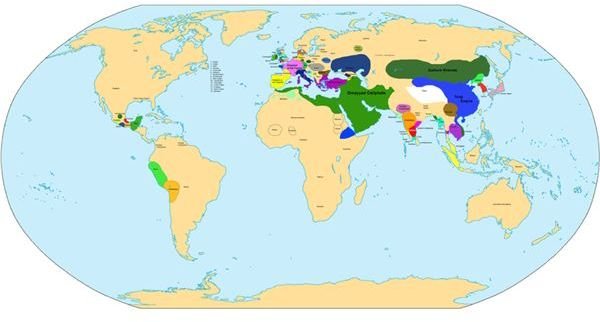Ways to Deal with Global and Economic Changes to Human Resource Management
Challenges Poised by Free Market Economy
The collapse of trade barriers and the emergence of a free market economy on a global scale have led to increased competitiveness among firms. Human resource management now plays an increasingly strategic role to ensure that an organization has the right talent to meet the high demand of global competition and exploit opportunities.
The ways through which HR management strives to meet such economic changes include:
- Adopting a market-driven approach in all functional activities.
- Mentoring change within the organization to cope with new realities.
- Equipping the workforce to become more customer focused and responsive to market needs.
- Skill enhancement of the workforce to promote adaptability, resilience, and agility.
- Helping employees overcome resistance to change by convincing them about the bigger picture.
- Devising and implementing various motivational approaches.
- Heralding a shift from performance-oriented pay to results-oriented remuneration or gain-sharing.
- Managing talent and effecting a match between employee interests and organizational interests.
- Inculcating and developing modern leadership styles such as transformational leadership, charismatic leadership, servant leadership, and others to suit the new realities.
Challenges Poised by Globalization
Globalization and the proliferation of multinational companies have led to an international workforce marked by increased diversity. The dimensions of workplace diversity include age, ethnicity, ancestry, gender, physical abilities, race, sexual orientation, educational background, geographic location, income, marital status, military experience, religious beliefs, parental status, and work experience.
The success of global organizations depends on its ability to manage and retain diverse talent that applies innovation, creativity, and different perspectives to further organizational interests.
Major challenges to human resource management professionals owing to gloablizatrion of the workforce include:
- Instituting a collaborative culture that accommodates diversity and multicultural sensitivities, and yet remains an underpinning of the overall corporate culture and values.
- Thinking globally while acting locally, by understanding the culture of the region, and linking globally dispersed units while also adapting to the societal requirements of host societies. A manifestation of this approach becomes evident with the radical difference in the nature of union-management relations and collective bargaining processes around the world
- Greater awareness of international laws and multi-linguistic skills
Managing Outsourcing
The spread of globalization combined with technological developments has made possible outsourcing, both at the global and domestic levels. Firms now turn to outsourcing as a means to cut costs as well as to avail the services of top-quality talent from a wider pool.
The challenges from globalization for human resource management leaders are to:
- Effectively manage the telecommuting employee.
- Devise new approaches to motivate international and far-flung employees.
- Ensure parity among such spread-over workforce.
- Reconcile concerns of outsourcing, leading to job losses and reduced pay for existing full-time employees.
The global and economic changes to human resource management raises the primary challenge of having the right people ready at the right time at the right place.
Image Credit: Wikimedia Commons, from janvierfv1212 at https://commons.wikimedia.org/wiki/File:World_Map_700_CE.PNG.
